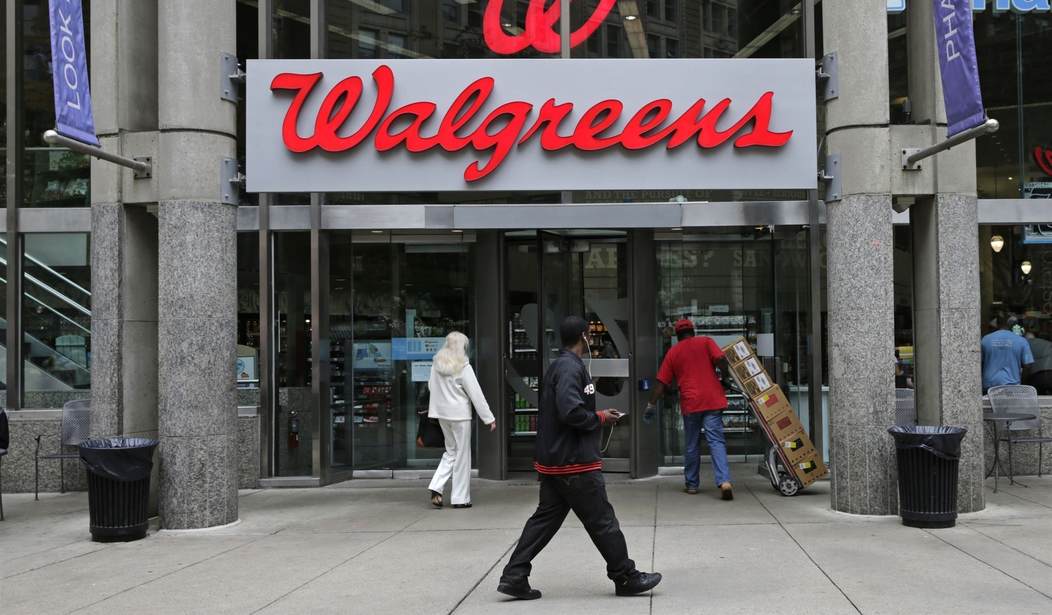Some protests broke out in Boston last week, but they had nothing to do with the war in Gaza or illegal migrants. Residents of the Roxbury neighborhood were protesting the announcement that the Walgreens pharmacy there would be closing after MLK Day. This will be the fourth Walgreens closure in Boston in a little over a year. The Boston Globe was quick to note that all four of the closures are taking place in predominantly Black and brown neighborhoods, creating what are being described as “healthcare deserts” where residents have limited access to prescriptions and other healthcare products without having to travel much longer distances, often on foot or by using public transportation. But is this really a race-based issue? And even more to the point, can a company like Walgreens be forced to keep their stores open even if they are not profitable?
In December, Denise Hogan wandered over to her neighborhood Walgreens pharmacy on Warren Street for her prescription medications, as she has countless times before. She left with unexpected, unfortunate news: the store is closing.
“It was like a bomb dropped on you,” the Roxbury resident recalled.
That pharmacy is slated to close by Martin Luther King Jr. Day, and is the fourth Walgreens to close in a predominantly Black and Latino Boston neighborhood in just over a year. In late 2022, the drugstore giant shut pharmacies in Mattapan, Hyde Park, and Lower Roxbury.
A group called The Communities of Color for Health Equity is organizing the protests. They say that they plan to take their demands to Walgreens’ board of directors if they feel they are not being heard. Members of the City Council have also been weighing in and looking into what options might be available to keep the store open.
I’m not going to try to argue that it isn’t problematic when the only pharmacy in a neighborhood shuts down. People rely on these stores for many aspects of home healthcare beyond just prescriptions. If you live in a city like Boston, particularly if you don’t have a car, taking care of those necessities can be problematic or even dangerous.
Yet at the end of the day, the reality is that Walgreens is a private corporation. It’s not a government office or a public service agency. Nobody is constitutionally assured that there will be a particular pharmacy located a convenient distance from their home. Further, private corporations have to be able to make a profit. Otherwise, they wind up closing down whether they want to or not.
The reality is that Walgreens has been losing money for a couple of years now. Last summer, CNN reported that the chain is closing 450 locations. On an earnings call with investors, the company’s CEO reported that earnings were substantially lower than they had been in the previous two years. It was an unsustainable situation and some amount of consolidation would be required.
Part of those losses were reportedly driven by a downturn in the economy. But it’s also been well-established that pharmacies are among the most likely businesses to be looted during the mass retail theft events that have been breaking out all over the country. And Walgreens is a favorite target.
Police are trying to track down a group of burglars they say broke into almost two dozen pharmacies across New York City.
They smash the glass door and run right in. The NYPD says the burglars captured on video dressed in all black have the same M.O. They enter pharmacies while they’re closed and are even able to easily bypass a metal gate if they have to.
They’ve broken into 20 pharmacies in Queens, Brooklyn and Staten Island. The crime spree started on July 27 and the most recent incidents happened on Saturday.
The Roxbury residents were already complaining of finding “empty shelves” at the Walgreens even before the impending closure was announced. Was that because the store was intentionally failing to restock goods in anticipation of the closure or because they had been repeatedly targeted for looting? It seems most likely that it could have been a combination of both. Roxbury is one of the poorer neighborhoods in Boston and they don’t have a strong police presence.
As a for-profit business, Walgreens needs to make money or shut down. As to the City Council taking action, the government can close down businesses for violations of various codes, but I’m unaware of any circumstances under which they can mandate that an unprofitable business remains in operation. The best they could probably do would be to attempt to set up some sort of grant program to make the location more secure and attractive. Then perhaps Walgreens could be convinced to remain or another pharmacy could be tempted to move in and replace them.








